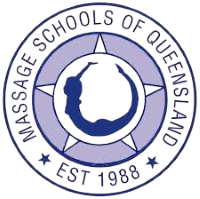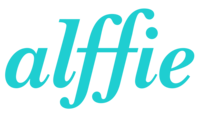
Arts and Culture courses in Wollongong
Course providers in Wollongong
The following providers offer Arts and Culture courses in Wollongong.

























Career Pathfinder
Skills shortages + AI Exposure
Discover in-demand careers and understand how each role may be impacted by AI and automation.
- See in-demand occupations across Australia
- Check AI Exposure ratings
- Compare training duration and average income
Further reading


Most popular photography courses
9th May 2022
Most popular environment and sustainability courses
12th June 2022All courses
- BSB50120 Diploma of Business (Records and Information Management)
- Graduate Certificate in Cultural Heritage and Museum Studies
- NEWCODE Bachelor of Fine Art
- 11126NAT Advanced Diploma of Sinology Studies
- Master of Museum and Heritage Studies
- Bachelor of Arts (Archaeology)
- Bachelor of Ancient History
- BSB10120 Certificate I in Workplace Skills
- Bachelor of Arts (Honours)
- 11258NAT Certificate I in Aboriginal Languages for Everyday Use (Gamilaraay)
- Master of History
- Master of Fine Arts (Research)
- 11258NAT Certificate I in Aboriginal Languages for Everyday Use (Dhurga)
- 11222NAT Diploma of Aboriginal Studies for Professional Practice
- Bachelor of Fine Arts
- Master of Science (Archaeological Science)
- Bachelor of Arts (Honours) (Archaeology)
- Bachelor of Arts (Art History)
- Bachelor of Science (Archaeology)
- Bachelor of Archaeology
- Bachelor of Arts (Archaeology and Ancient History)
- BSB40720 Certificate IV in Library and Information Services
- Bachelor of Business (Event Management)
- Bachelor of Arts (Honours) (History)
- 11200NAT Certificate II in Vocational Preparation for Women
More about Arts and Culture courses
Exploring Arts and Culture Courses in Wollongong opens up a wealth of opportunities for those passionate about creativity and cultural expression. Wollongong, with its vibrant community and rich cultural landscape, is the ideal place to embark on a journey into this dynamic field. Here, you can discover training providers that are either Registered Training Organisations (RTOs) or recognised by industry bodies, ensuring a quality education that prepares you for various exciting career paths.
The diverse options available within arts and culture not only cater to budding artists but also connect to vital sectors like Local Government and Public Safety. Roles such as community arts facilitator or cultural program coordinator are becoming increasingly significant within local councils and community organisations in Wollongong. By pursuing courses in the Arts and Culture domain, you can build a strong foundation for these rewarding career paths.
For those interested in specific job functions, arts and culture education can lead to roles not just in creative industries but also in areas like Celebrancy. Here, you can combine your artistic flair with meaningful social contributions. The skills acquired through these courses are invaluable, particularly in a city known for its events and festivals, where the role of a celebrant can be both fulfilling and influential.
Wollongong's strong heritage also presents an exciting opportunity for learners considering pathways that intertwine arts and culture with Border Security & Customs and Correctional Services. Creative arts programs can offer rehabilitation avenues and community engagement strategies that are essential in these sectors, highlighting the importance of arts in fostering social cohesion and understanding.
As you navigate your education journey, don't overlook the potential of engaging with the Australian Defence Force and how creativity plays a role in their community outreach initiatives. Arts and culture play a crucial part in building resilience and morale, making it a relevant field for those looking to serve. Start your exploration of opportunities in this area by browsing the full list of courses available in Wollongong and take a step closer to your future in the arts and culture sector today.
